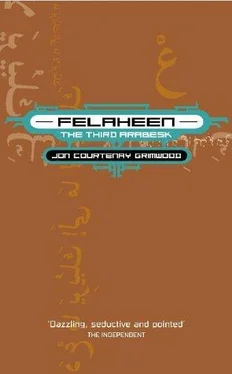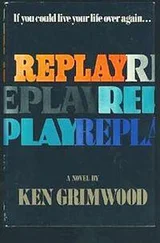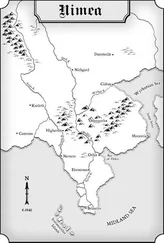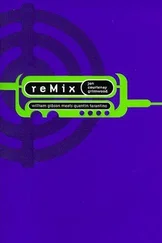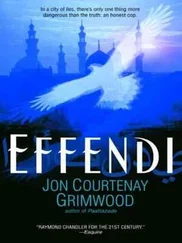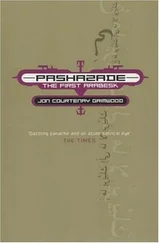1) Suits still in cupboard.
Ascertaining this was less hard than it sounded given that her uncle's total collection came to three suits, two pairs of shoes, five shirts and a red tie.
2) Missing jellaba. One of Hamzah's men working on the garden had complained his jellaba was gone.
That was it . . .
CHAPTER 15
Monday 14th February
"Isaac and Sons?" The street sweeper repeated Raf's question slowly, unsure of its exact meaning. The Isaac he got, this was a foreign version of Isacq which was a common enough name, the rest of it . . .
He shrugged.
"Máa Saláma." Raf said a polite good-bye to the man with the broom and stepped back from the pavement, running his eyes along a row of shop fronts. He was looking for a sign. Something hand-painted onto board to judge from the other signs that hung above darkened windows. Actually he was looking for far more than that.
Ali bin Malik watched the beggar limp away. The stranger's shoes were those of the very poor. A slab of rubber cut from a tractor tyre and punctured with two loops of twine to fit the whole foot and the largest toe. But even these shoes were better than the striped jellaba he wore. This was torn beneath one arm and stained around the ankles with mud or dried concrete.
"Wait," Ali called after the beggar and the man stopped. "Ask Ahmed, my uncle." Pointing along the street he indicated a shadow crouched by a dustcart . . .
"Es-salám aláykum."
Ahmed looked up from his spoils.
"Ahmed?"
A brief nod. And then the man remembered his manners and returned the peace. "Waláykum es-salám."
"Máhaba," Raf said. Hello.
That earned him another nod, less abrupt this time.
"I'm looking for an office," said Raf, "that's meant to be on Rue Ali bel Houane." With a shrug he glanced both ways along the almost deserted street. As if the office might be hiding somewhere in the half dawn. It was maybe six in the morning and Raf could see everything as clearly as if it had been high noon with the sun direct overhead; a lot clearer than most people in Kairouan could have seen even then.
Raf's eyes liked early morning. When the world came into complete focus. There were times when Raf felt sure his circadian rhythms were reversed. That what his body expected from him was to sleep in the day and wake at night.
Baudelairian delusions of Bohemia , Zara had called it in one of her crosser moments. Maybe the only moment he'd ever really seen her cross. After she'd come to his room in the haremlek at night and found him dressed, sitting by an open window in the dressing gown of a dead man. He'd tried to explain to her then who he thought he really was. It was an unwise move. After she'd gone, he looked up Baudelaire and Bohemia to confirm what she'd been saying. A verdict he would dispute but understood how she got to where she got. But then that was negative capability all over, an overdeveloped talent for seeing both sides of everything and agreeing with neither.
Putting the time at six was a guess as Raf had left his watch in El Iskandryia. The fair call to prayer had been twenty minutes before, however, and the sun was somewhere on the horizon, although buildings prevented Raf from knowing exactly where.
"This office . . . You know the number?" Ahmed had a smoker's voice and nicotine stains on the sides of his fingers to match.
"It's number . . . ?" Casually Raf pulled a packet of bidi from the ripped pocket of his jellaba and lit one, dragging deep. As an afterthought he passed the packet to Ahmed and offered Ahmed his cigarette so the street cleaner could light his own.
"Afraid not." Raf shook his head.
It was a lie, of course. That number became fixed in Raf's head the first moment he stood in the qaa , with steps leading from the courtyard to the madersa's first floor behind him and Lady Nafisa ahead, angrily pushing a letter in front of his face only to withdraw it and read him extracts, her tone furious and disdainful.
On the 30th April, Pashazade Zari Moncef al-Mansur, only son of the Emir of Tunis, married Sally Welham at a private ceremony in an annexe of the Great al-Zaytuna Mosque. She was his third wife. He divorced her five days later.
He'd had to take her word on that because the only bit he'd been able to read was the letterhead. Isaac & Sons: Commissioner for Oaths, 132 Rue Ali bel Houane, Kairouan, Ifriqiya. The rest was in Arabic, a language he now spoke but was still unable to write or read.
(A fact Raf justified by telling himself that Arabic script had a minimum of six styles, codified in Baghdad by Vizir Ibn Muqla at the beginning of the tenth century. Three used for the Holy Quran and three for official work, administration and correspondence. And out of these had developed other styles, at least one, shikaste , decipherable only to a practised reader. Added to which, letters changed shape according to their position in a word.)
"But you know the owner's name?"
Raf nodded. "It's a law firm," he said. "With offices in Kairouan. Isaac and Sons."
The old man thought about it, shook his head and sat back down on the pavement where a pile of rubbish waited to be sorted into heaps. There were cola cans, empty and sticky, discarded paper, mainly oiled wrappers from the pastry shops lining Rue Ali bel Houane, empty packets of cigarettes, local mostly but one of them, the one with a broken cigarette still inside, an Italian brand of which Raf had never heard.
Ahmed tucked the foreign cigarette behind his ear and went back to sorting out rubbish. All the cans went in one bag, the paper in another. Rags got tied to each other until they looked like a string of drab bunting. "It doesn't bring much," Ahmed said, "but it brings a little."
"Inshá allá," Raf said.
"Inshá," the street cleaner agreed.
Around them Kairouan was beginning to stir. A small woman with arms as thin as twigs and a birdlike strut bustled onto the pavement from a nearby shop and scowled as soon as she saw Raf. Then she noticed Ahmed sitting on the other side and promptly relaxed. Everyone offered the peace, then said good morning and finally said hello. By the time that was done another shop had begun to open, the metal grille being pulled back from the doorway and an awning being wound down in a screech of rusty metal.
"Ishaq and Sons?" Ahmed said to the woman who twisted her thin neck to one side, making her seem more birdlike than ever.
"Ishaq?"
"This man's looking for their office."
And not finding it , Raf thought to himself. Most of the shops did without numbers but even counting forward from some that did and back from others he'd failed to work out where number 132 should be.
With one hand on a tarnished metal pole she'd been about to use to wind down her own awning and her other on a bony hip, the woman considered Ahmed's question, head still cocked to one side in thought. "Ishaq and Son . . ." Slowly she straightened up, small eyes turning to gaze at Raf.
"Perhaps this was a notario?" she suggested.
Raf nodded.
"Ibrahim ibn Ishaq," she told the street cleaner, jerking her head backwards to signify somewhere behind her. "He used to be above the French bookseller."
"Used to be?" Raf said.
"He died," said the birdlike woman. "Years ago. Pneumonia. After that really bad spring."
"His son took over?"
"Ibrahim was the son. That was it. The place is empty."
Surprise should have been the first thing Raf felt. Or maybe shock, disbelief and blind refusal to accept the impossible. All of those would have been normal. But what Raf actually felt was sick. A cold nausea at the centre of his gut spreading out through his veins, his skin growing pale as blood withdrew from his capillaries and shivers syncopated the length of his spine. It felt like static playing across his body, twitching muscles and burning like ice along the branching pathways of his nerves.
Читать дальше
